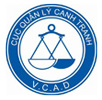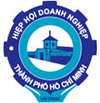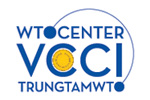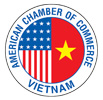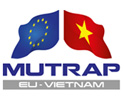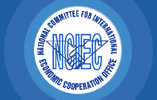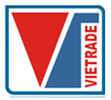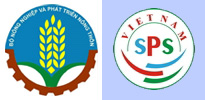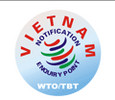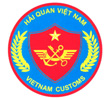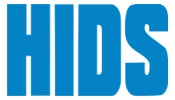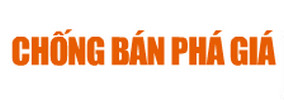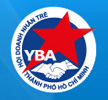The challenge of Vietnamese businesses when accessing Indonesia's Halal market is largely that businesses do not understand the Muslim country's consumer culture.

Market with lots of potential
Halal is an industry that provides standard products and services for Muslims in general and Halal food in particular with a large scale and high growth potential.
Regarding the potential of the Halal market, Mr. Le Chau Hai Vu, Director of Consultech Joint Stock Company, said that with a geographical location near major Halal markets in Southeast Asia and Asia, and a good relationship with Muslim countries in the world, Vietnam had many advantages to develop the Halal industry. In particular, the Government had paid attention and had practical policies to develop the Halal industry. The core issue was that businesses should overcome challenges from the market and achieved Halal certification.
Talking about the importance of Halal certification, Mr. Le Chau Hai Vu said that products after being Halal certified would have benefits such as: meeting requirements when exported to Muslim countries. and Muslim customers; Halal certified products were trusted and used by Muslims without hesitation. In particular, creating consumer trust, being chosen by consumers all over the world because it met both quality control, and food safety and hygiene requirements.
Halal certification of ingredients is the simplest, most reliable and economical proof method for viewing ingredient labels, especially ingredients of animal origin. It helps businesses participate in the supply chain of Halal materials and products around the world. At the same time, businesses will have advantages in marketing, offering and accessing the Muslim market of 2.2 billion people (accounting for 25% of the world's population).
Mr. Le Chau Hai Vu added that the Halal market included many fields from food to cosmetics, functional foods, pharmaceuticals, tourism, consumer goods, fashion, education, logistics... The Halal market size reached US$ 7,000 billion in 2022 and was expected to increase to US$ 10,000 billion before 2028.
Mr. Pham The Cuong, Commercial Counselor, Vietnam Trade Office in Indonesia, said that besides importing rice, Indonesia was also a very potential market for Vietnamese food exporters to exploit. In particular, regarding Indonesia's Halal market, there was still a lot of potential for Vietnamese businesses to exploit, because the majority of the population was Muslim. Therefore, export businesses should proactively learn and apply for Halal certification from Indonesia. Halal certification was always the first question of any Indonesian importer or distributor when food and beverage products accessed to this market.
Representative of Consultech Joint Stock Company informed that although Vietnam had many advantages, Vietnam only had about 20 products exported to the Halal market, a very modest number compared to market demand; Up to 40% of Vietnamese localities do not have products exported to the Halal market... The export room was still very large and full of potential. In particular, Halal Certification was considered a "passport" to this market. Even if they participated in trade promotion fairs or sell directly without this certificate, the importer could not sell goods into supermarkets or retail points, or import raw materials from Vietnam, though our prices were very competitive in the international market, we were missing out on 2.3 billion consumers in this market alone, only Southeast Asia had 230 million users who could not access Vietnamese products.
Halal certification is the "key" to entering the market
According to Mr. Le Chau Hai Vu, the challenge of Vietnamese businesses when accessing Indonesia's Halal market was big due to the fact that businesses did not understand the consumer culture of the Muslim country, making hesitation; they had not followed proactively customer requests; faced many difficulties in certification because of cost and many separate types of certifications; lack of human resources (muslim employees managing the Halal production process) and lack of Halal materials; they had not clearly understood Halal certification standards and processes as well as Halal certification organizations in Vietnam.
With the above challenges, in order for Vietnamese businesses to successfully penetrate the Indonesian Halal market, Consultech representatives noted that businesses should proactively learn, build systems and register for Halal certification for market being suitable for business development direction; build products meeting Halal standards for target markets; promote product brand images, enhance trade connections.
Mr. Tran Nhat Thanh, export specialist of Vietnam Pharmaceutical and Food Joint Stock Company, said that the company was exporting to the Middle East, India, and Southeast Asia markets. Indonesia was a potential market, especially for products of the Vietnamese pharmaceutical, spice and agricultural products. Especially Halal certified products, the certification would be an opportunity to expand into this potential market. Grasping the needs of each market, the company was making efforts to research the market, standardizing production processes, and meeting the requirements of importers.
The Vietnam Trade Office in Indonesia also recommended that businesses should proactively apply for Halal Indonesia certification and SNI national standards certification; participate in the Indonesian e-commerce market; Take advantage of overseas Vietnamese channels and Vietnamese businesses in Indonesia. At the same time, businesses should also pay attention to fraud and commercial disputes.
Source: VCN
Keywords: Indonesia, market, high growth, Vietnamese businesses



